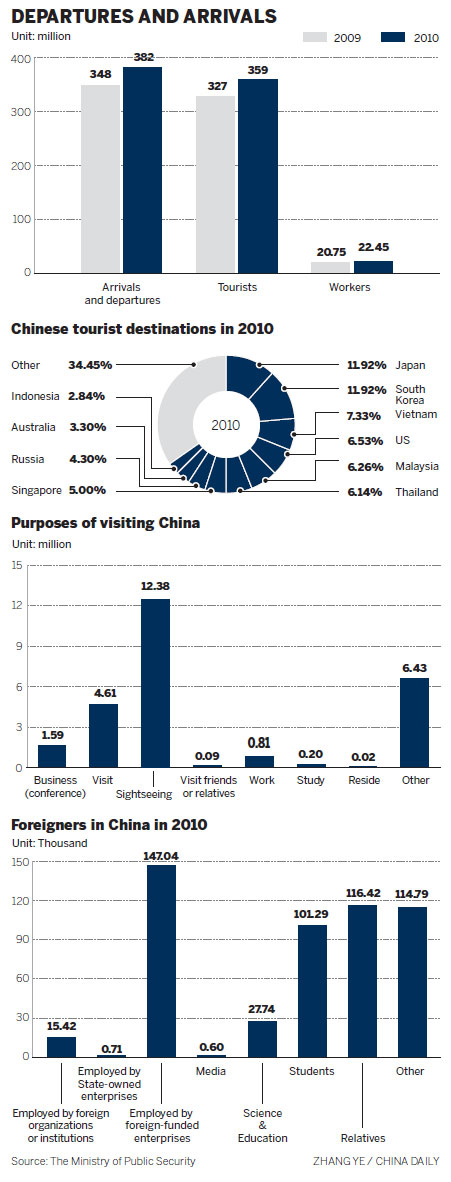A nickel is five cents and a dime is ten cents. The expression "nickel and dimed" is similar to the expression "death by a thousand paper cuts."
In her book, Nickel and Dimed, Barbara Ehrenreich moved from Florida to Maine to Minnesota, taking the cheapest lodgings available and accepting work as a waitress, hotel maid, house cleaner, nursing-home aide, and Wal-Mart salesperson.
When I return to Changchun in February, I will spend the remainder of the 29-day month and March living on as little money as I can, scrupulously reporting to all of you on this experiment. I will not embed as either a fu wu yuan (service personnel) or as an ai yi (housecleaner), nor would my employer, employment or the Chinese Foreign Affairs bureau allow it. My language ability limits my ability to communicate with the truly poor, but I will do my best to share with you about how the other half lives in China.
I will do things that really poor people and Third World denizens do, like hang out my clothes. (Watch this video of a couple people in New York decrying the clothesline and then see this ABC News story about a "poor woman" who left 2 million to the Salvation Army.) You can expect more on the mechanics of this experiment in the future. Here is a little economic overview that helps set the stage.
Challenges Ahead
The International Monetary Fund (IMF), in a recent staff report, describe the challenges and realities thus:
Focus. The consultation examined the macroeconomic outlook, the potential for a property price bubble, the risks to the banking system, and the policy measures underpinning the 12th Five-Year Plan. The mission drew on the work of the FSAP—to connect financial sector reform to macroeconomic rebalancing—and of the spillover team—to trace out the international implications of rebalancing in China.Understanding the 12th Five-Year Plan will also be part of my assignment.
Macroeconomic Policies. The ongoing withdrawal of monetary stimulus is fully appropriate but a greater weight should be given to the use of higher interest rates and nominal appreciation in tightening monetary conditions. A continued steady decline in the fiscal deficit is also warranted, accompanied by a reorienting of tax and expenditure policies to support consumption.
Risks. The main near-term domestic risks to the outlook are from higher-than-expected inflation (most likely from domestic food supply shocks), a property bubble that inflates and then bursts, or a decline in credit quality linked to the post-crisis expansion in lending.
Rebalancing. There has been much progress on a number of fronts and the 12th Five-Year Plan lays out a comprehensive strategy to advance the transformation of China’s growth model. To achieve these goals, a range of measures will be needed including improvements in the social safety net, policies to raise household income, a liberalization of the financial system, a stronger currency, and increases in the costs of various factors of production. A successful rebalancing, with policy changes on all these fronts, will generate positive spillovers to the global economy.
Financial Liberalization. Financial reform holds significant promise in contributing to the needed transformation of the Chinese economy. Over the horizon of the 12th Five-Year Plan, reforms should seek to secure a more modern framework for monetary management, improve supervision and regulation, deepen the channels for financial intermediation, transition to market-determined deposit and loan rates, and open the capital account. In all of this, a stronger renminbi will be an important complement.
Minimum Wage in China
As some of you may know, I was on the board of Burlington, Vermont' Peace & Justice Center when they were rolling out the first major livable wage study in the nation. Understanding wages will be one topic that I discuss here. Is "Communism with Chinese characteristics" just a cynical and authoritarian version of Western capitalism? As we approach the November changes expected when seven of nine politburo members step down, how will the economic system here adapt to insure that the Revolution continues (i.e. continuous reform and opening) and that the people are served by their government instead of the people serving their government?
The average minimum wage for most the People's Republic of China rose by 21.7% by the end of September 2011, the Ministry of Human Resources and Social Security reported. The city of Shenzhen, next to Hong Kong, guaranteed the highest minimum wage of 1,320 yuan ($207; £130) a month. Beijing offered the best hourly rate of 13 yuan ($2). (See BBC News.)
The cost of living for expatriates, though, is higher in Beijing than in the Big Apple. Housing in China is widely viewed as out-of-control. There are scores of empty tenements and shopping malls, though, and about half of the population is still rural. Half of these people still live on a dollar a day, depending on how you calculate it.
The Wealth Gap
As in United States, the income gap in China is a source of national embarrassment. Michele Geraci at Zhejiang University explained it well in a well-researched piece printed in China Daily last February. As my own country wrestles with the issues raised by Occupy Wall Street, questions of income disparity are front-and-center around the world.
As fascinating to me, though, is the ancient culture of China and people's sense of their own place in the world. The disgusting displays of wealth here shock me. Are the majority of the proletariat ("proles," for short), pacified or comfortable with the Moutai drinking class? If so, why? This blog will continue to talk about fur coats and green coats; Hummers and bikes; corn meal and caviar.



















